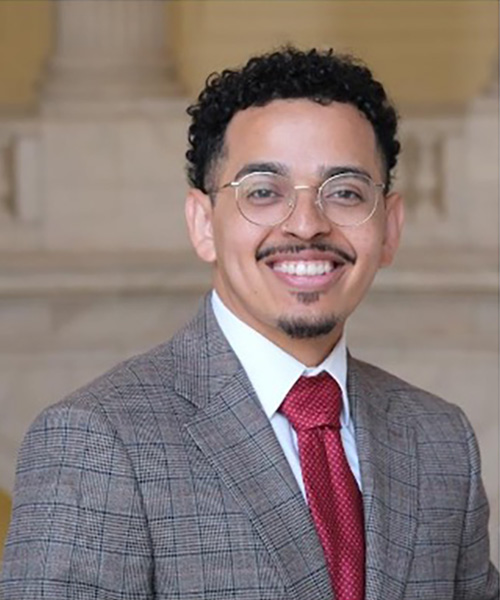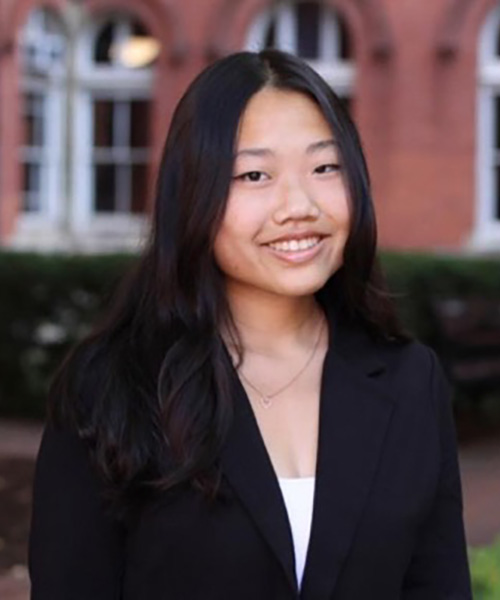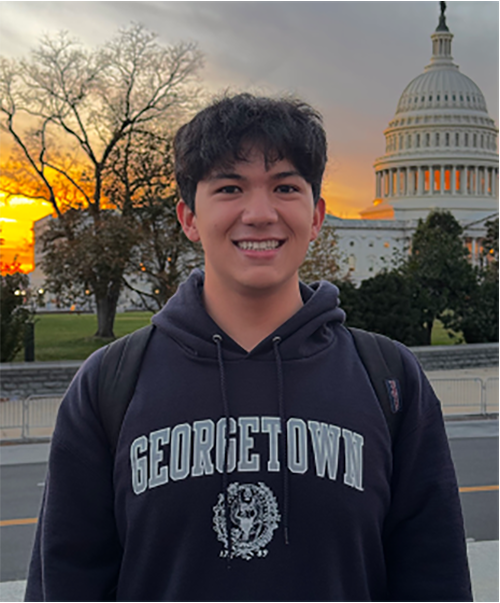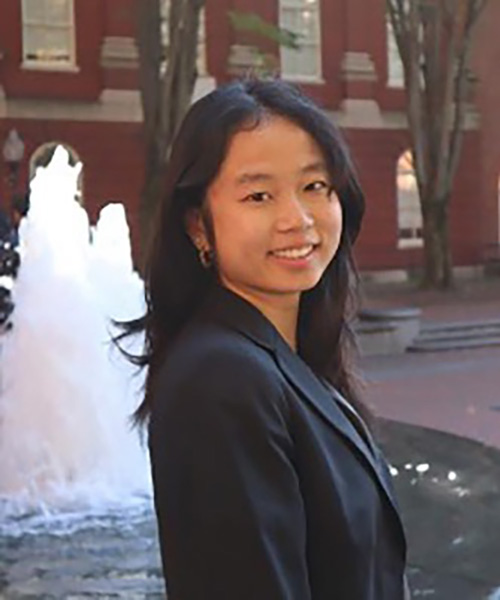
The People Beyond the Talking Points
Bennie Chang | 2025年5月31日
响应: Georgetown Students Reflect on Student Dialogue in Beijing and Hong Kong
Isabella Stratta
请注意:中英文网站上发表的教日志均为英文。
Through the U.S.-China Student Dialogue, I came to understand intellectual empathy as a concrete approach to interpreting others’ perspectives on their own terms. Introduced to us by Professor Da Wei, this concept urged us to ask more careful questions: What assumptions shape this position? What experiences inform it? What trade-offs does it reflect? These questions didn’t require agreement, but they demanded that I question prior beliefs and assumptions—especially during our exchanges with students, government agencies, and civil society groups.
That mindset shaped how I approached conversations in Beijing and Hong Kong. At Tsinghua University, I participated in a small group discussion on climate policy. We explored how environmental protection is often viewed in tension with economic growth, and how that framing plays out differently in our respective contexts. Several students emphasized how, in parts of China that are still industrializing, environmental policies can feel disconnected from more immediate economic needs. I could connect this with similar realities in the United States where changes in climate policy can make certain communities feel left behind during the green energy transition. At the National Development and Reform Commission, we heard how Chinese economic planners are thinking about long-term transformation under shifting global conditions. It was clear that current tensions in U.S.-China relations are shaping not just immediate decisions, but broader debates about the country’s future development model.
Our conversation with the American Chamber of Commerce in Hong Kong offered a different lens. Business leaders shared how the temporary pause on U.S. tariffs had altered the strategies of Chinese and Hong Kong firms. While some continued to diversify supply chains into Southeast Asia, others were beginning to reassess that shift in light of rising trade frictions in the region. These insights were echoed in our meeting with Goldman Sachs, where we received detailed analysis on changing consumer behavior and broader economic trends. I hadn’t realized, for instance, just how sharply the number of STEM Ph.D.s in China had risen, or how sensitive household consumption is to fluctuations in real estate prices—a major contributor to household wealth. These data points helped clarify earlier discussions we’d had with government officials about upgrading China’s economy.
What stayed with me most, though, were the conversations outside of formal meetings—on bus rides, during meals, and between sessions. Getting to know the Tsinghua students not just as peers in a structured dialogue, but as individuals with specific backgrounds, goals, and everyday experiences made the exchange feel more honest and more grounded. Practicing intellectual empathy wasn’t abstract—it meant being present in those moments, asking better questions, and listening with an openness to be challenged.
Isabella Strata (SFS/B’25) is a student at Georgetown University studying business and global affairs.

Bennie Chang | 2025年5月31日

Daniel Castro Bonilla | 2025年5月31日

Maggie Yang | 2025年5月31日

Patrick Coggin | 2025年5月31日

Raghav Akula | 2025年5月31日

Tiffany Cowan | 2025年5月31日

Zifei Zhao | 2025年5月31日

Drew Zacharias | 2025年5月31日

Luke Hughes | 2025年5月31日